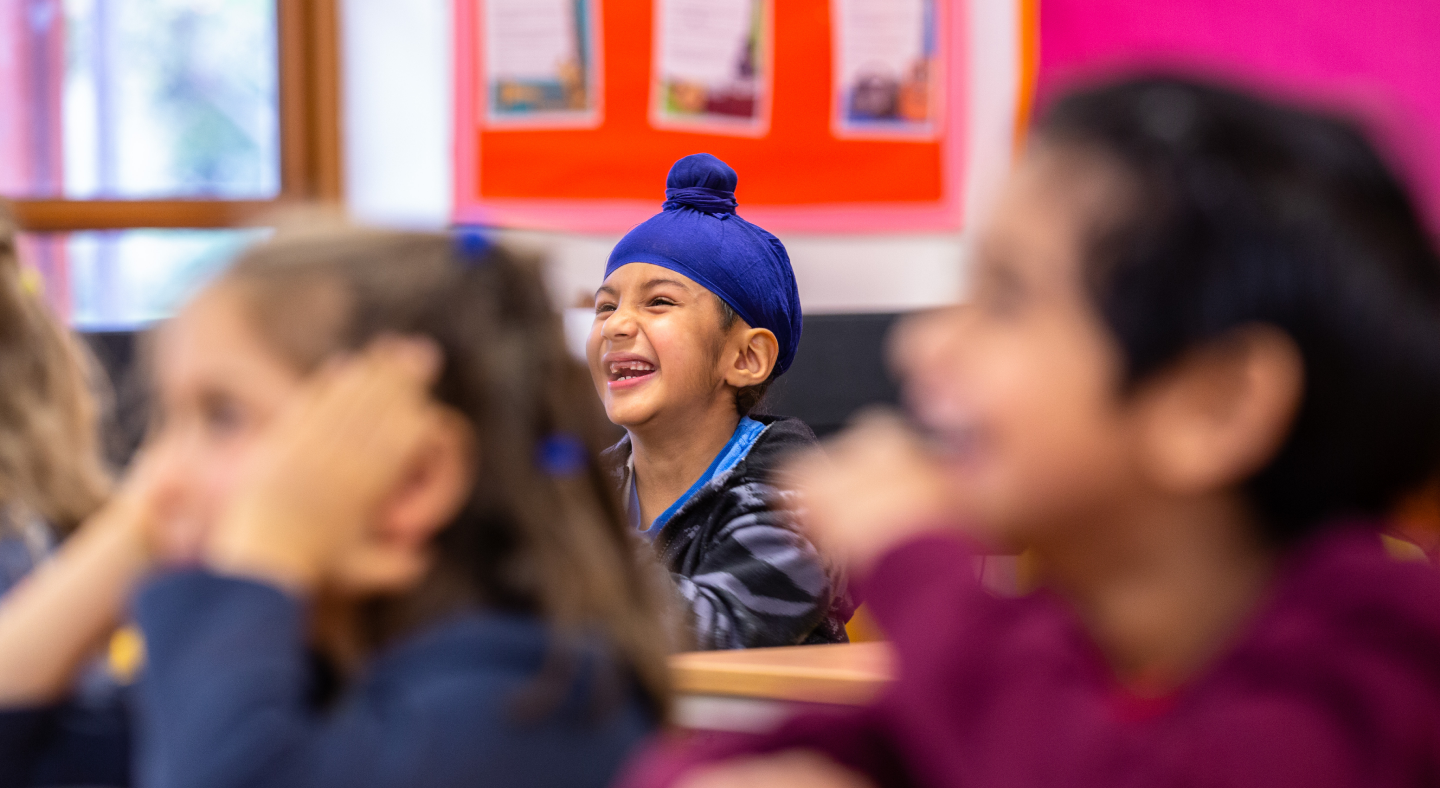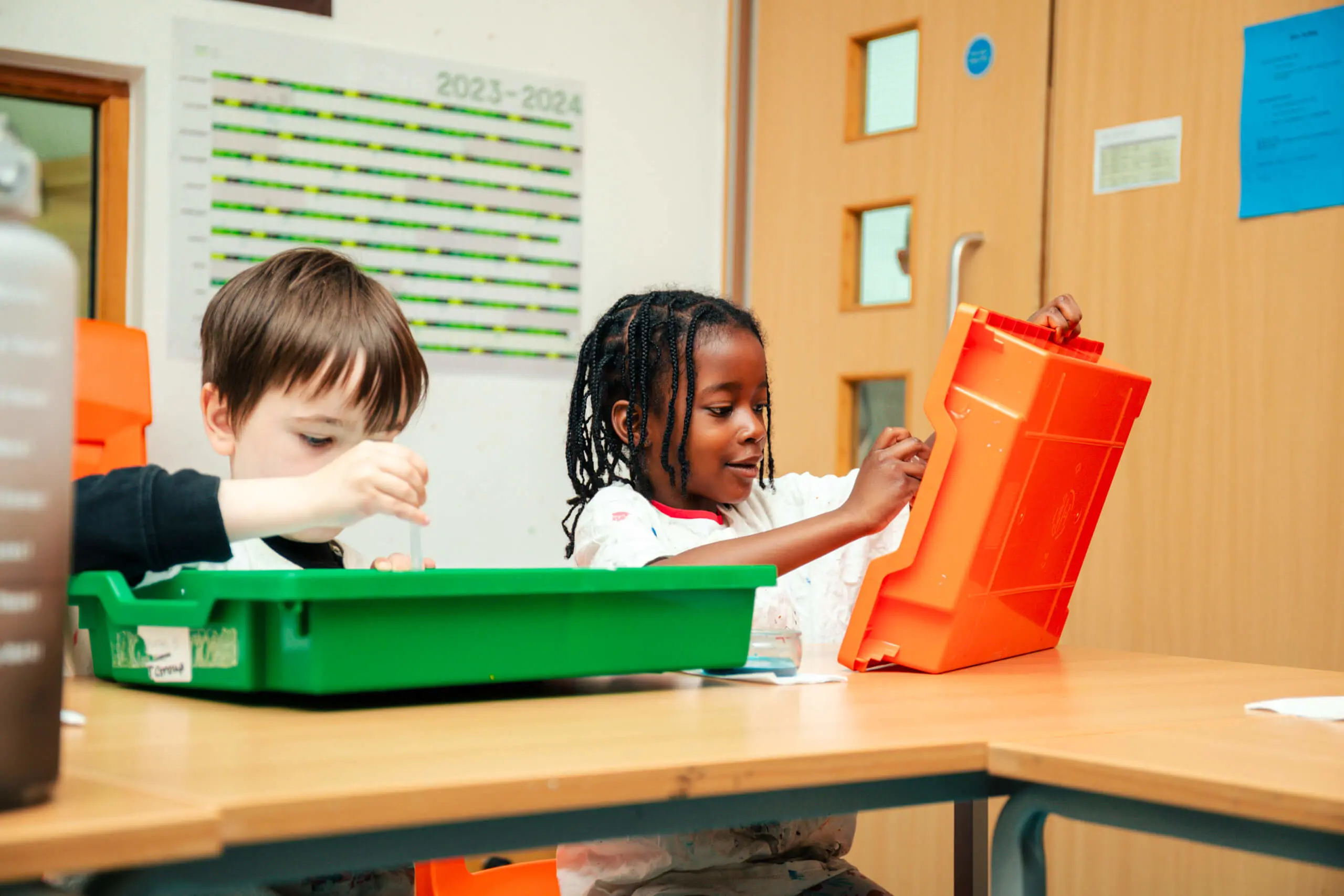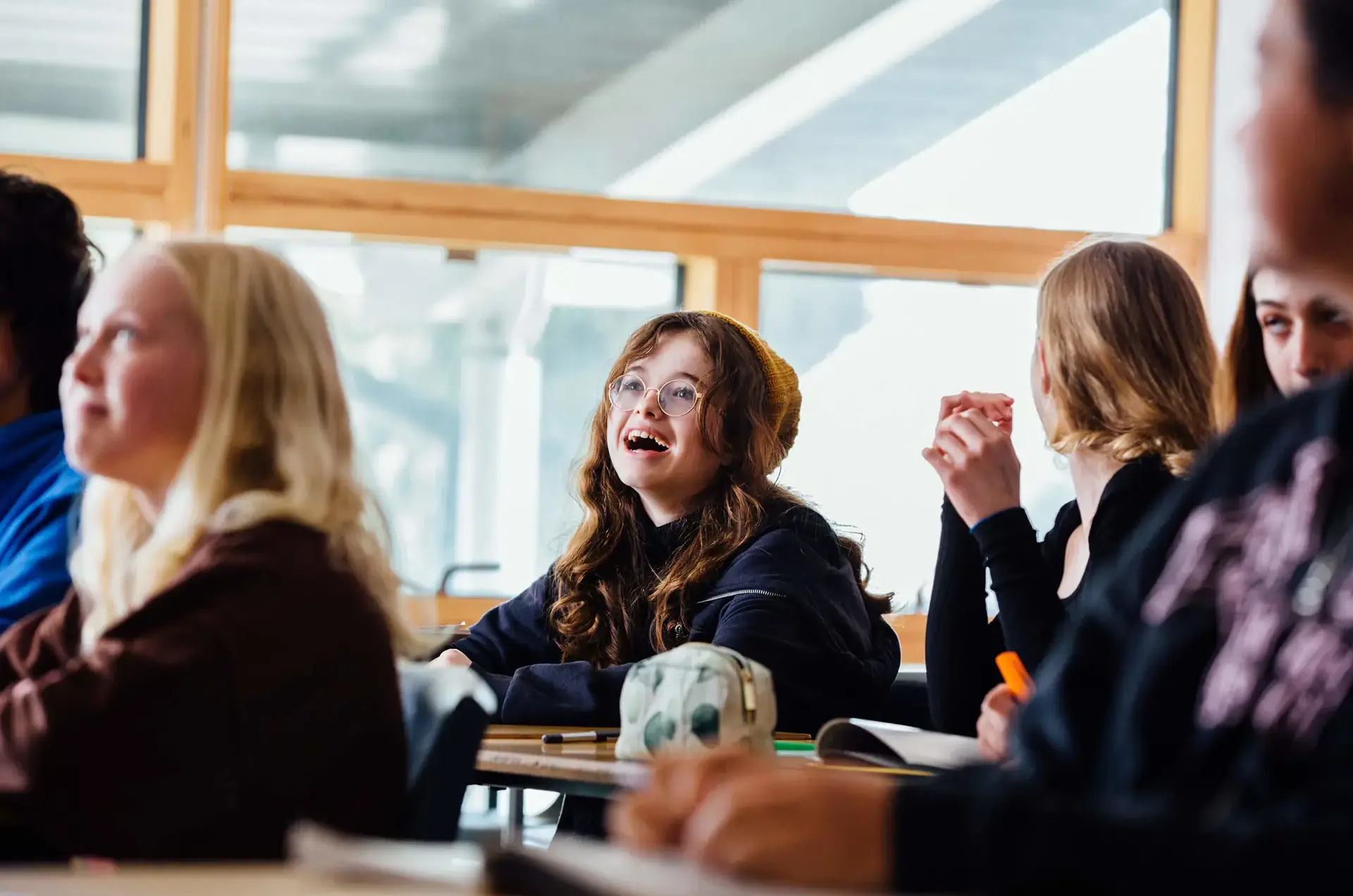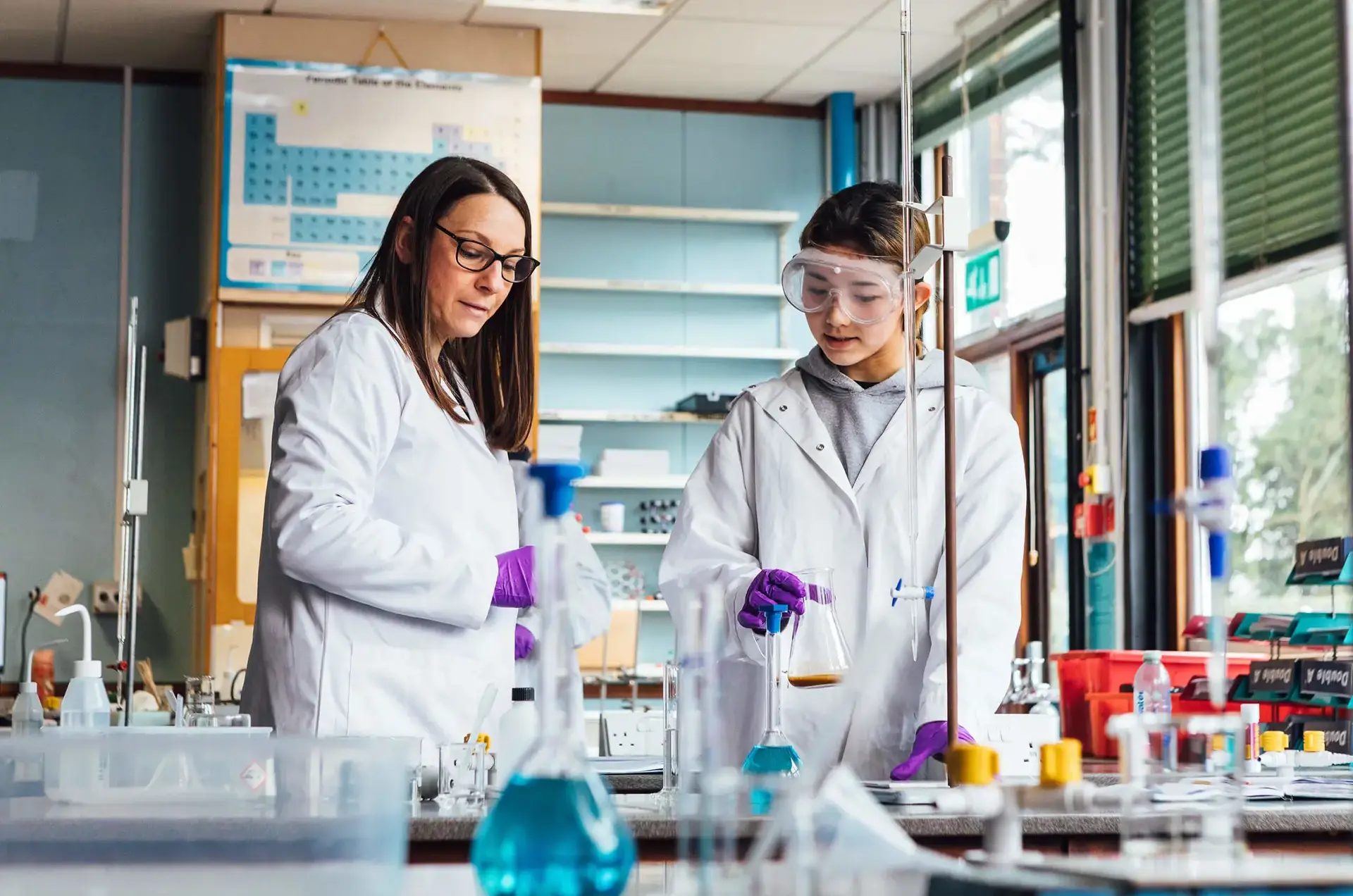St Chris Sixth Form Curriculum
At St Chris, every Sixth Form journey is different — and rightly so.
We support each student to shape a path that reflects their strengths, interests and ambitions, combining academic challenge with space to grow and explore what matters to them.
Sixth Form at St Chris is a time for students to take greater ownership of their education — to dive deeper into the subjects they love, develop independence, and explore what matters to them, both now and with an eye to the future.
With small classes, specialist teaching, and a holistic approach, we support every student to grow in confidence, knowledge and self-awareness.
Our Sixth Form programme reflects that spirit: flexible, challenging, and personalised to fit each learner’s next steps.
What Does a Typical Sixth Form Programme Include?
We offer a wide range of A level courses and a number of Level 3 Diplomas. Students thrive in small classes and enjoy individual attention and excellent facilities, with many specialist areas purpose-built and equipped to the highest standards.
Our study programme caters to the diverse interests and ambitions of our students, providing a platform to thrive academically and cultivate essential life skills.
St Chris has a long-standing record of academic success. Through a system of dedicated and individually tailored support from Higher Education and UCAS Advisers, careers advice and bespoke support, we can support our students to reach their next steps. Students regularly gain admission to the very best universities (including Oxford, Cambridge and others of the Russell Group) as well as art colleges, apprenticeships and vocational qualifications.
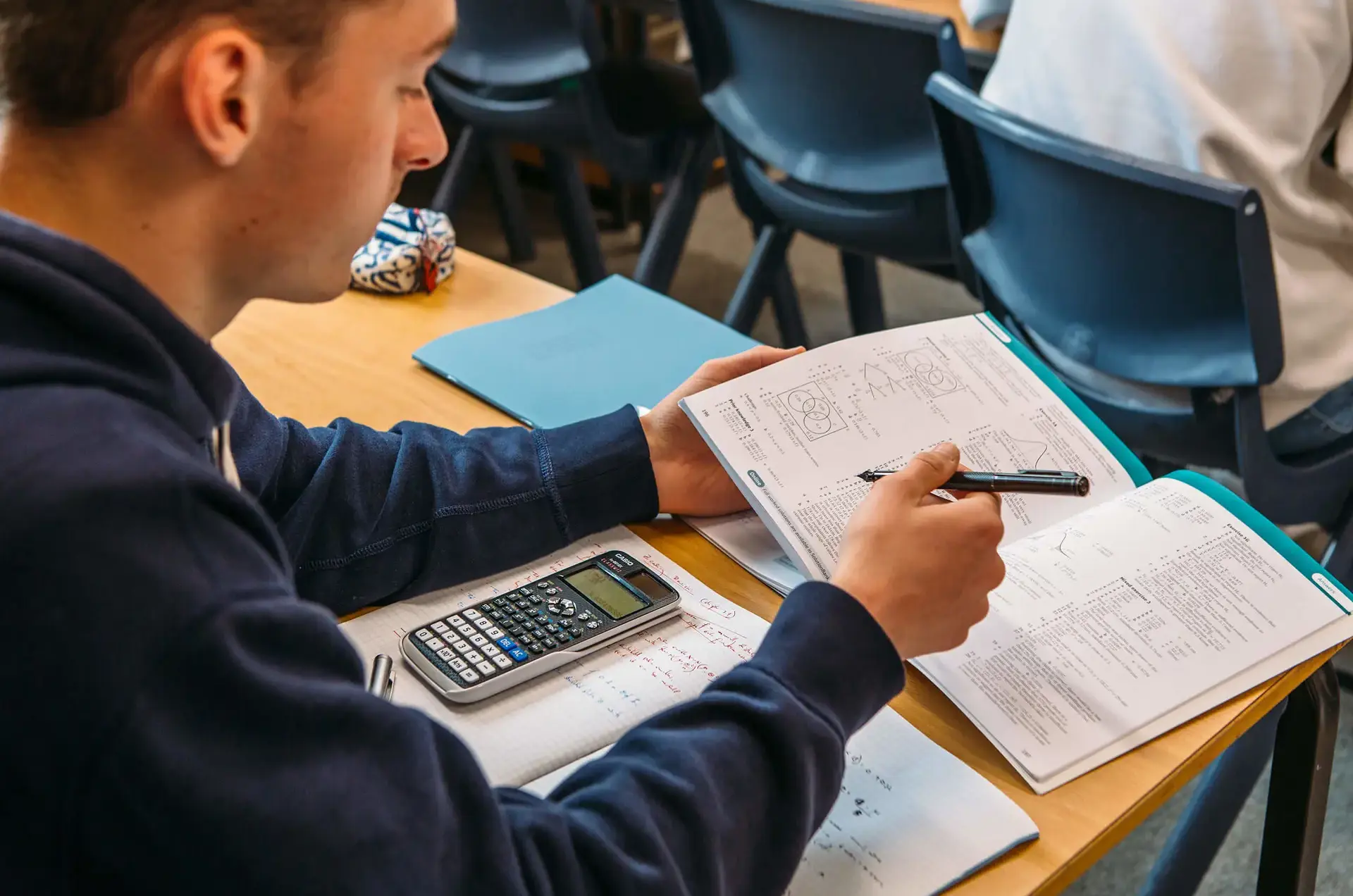
Sixth Form Study Programme
Most students in the Sixth Form follow a study programme that includes:
-
Three A Level subjects, or a combination of A Levels and Level 3 Diplomas or BTEC courses
-
An option to take four A Levels, available for students where appropriate
-
Extended Project Qualification (EPQ) (optional) - a research-led project supporting independent thinking, analysis and academic writing
-
Crest Award (optional) - a student-led STEM project with Bronze, Silver and Gold levels
-
Core Maths (optional) – ideal for students who need maths to support their future pathway, but not at full A Level intensity
-
A structured one-to-one tutorial programme
-
Independent study periods, fostering ownership and self-direction
-
A full PSHE and Higher Education guidance programme, including futures, wellbeing, finance and life skills
-
Weekly Opportunities Programme — a chance to explore, volunteer, create and grow
-
One-to-one careers advice in Year 12 and Year 13
-
10 hours of Community Service
A Levels and Post 16 Courses Available to Study
We offer a broad and inspiring choice of A Level subjects, including the arts, sciences, humanities and beyond, including all the facilitating subjects listed by the Russell Group of top universities.
A Level Courses
- Art & Design: Art, Craft & Design
- Art & Design: Fine Art
- Art & Design: Graphic Communication
- Art & Design: Photography
- Art & Design: Textile Design
- Art & Design: Three-Dimensional Design
- Biology
- Business Studies
- Chemistry
- Computer Science
- Core Maths (Equivalent to an AS Level)
- Drama and Theatre
- Economics
- English Literature
- Film Studies
- French
- Further Mathematics
- Geography
- History
- Mathematics
- Music
- PE
- Philosophy
- Physics
- Politics
- Psychology
- Spanish
Level 3 Diplomas / BTECs
Diplomas and BTECs offer a more vocational or applied learning route, assessed through coursework and practical work, with strong university recognition:
- Digital Music Production (BTEC)
- Food Science & Nutrition (Diploma)
- Performing Arts (BTEC)
- Sport (BTEC)
Each A Level, Level 3 Diploma or BTEC is taught in six 50-minute lessons per week. A bespoke programme is designed for each student with no restrictions, for example, if a student wants to take all art or all science subjects or reduce or increase the number of A Levels they take, they can.
Academic Progress and Tracking
Your teachers will track your progress through a mix of classwork, independent assignments, practical work, and mock exams. You’ll receive regular feedback to help you understand where you are and what steps you can take to improve.
If you’re finding a subject difficult, the first person to speak to is your subject teacher. We encourage open dialogue—they’ll be more than happy to help you find strategies that work.
Teachers, Heads of Department, Personal Tutors and the Sixth Form team all work together to ensure every student is making progress. If there are signs that you’re struggling, we’ll step in early to offer help—academic, practical, or emotional.
We understand how important it is to keep your parents or carers informed. We hold two Parents’ Consultation Evenings each year, which run as hybrid events—parents can attend in person or online. These meetings are a chance to discuss your progress, explore subject-specific feedback and look ahead to your goals.
In addition to consultations, parents receive termly written reports that include your attainment grades, UCAS predictions, and attitude to learning. These reports should never be a surprise—ongoing feedback is a natural part of Sixth Form learning, and we encourage regular conversations between you, your teachers, and home.
Structure of the Day
The main St Chris school day runs from 8.40am to 3.40pm and is made up of six periods. The gates are staffed from 8.00am for students who arrive early.
| 8.40am | School Day Begins |
| 8.40 to 8.50am | Registration |
| 8.50 to 9.40am | Period 1 |
| 9.45 to 10.35am | Period 2 |
| 10.35 to 10.55am | Little Break |
| 10.55 to 11.15am | Tutor Group Time / Morning Talk (Monday, Wednesday and (optional) Friday |
| 11.15am to 12.05pm | Period 3 |
| 12.10 to 1.00pm | Period 4 |
| 1.00 to 1.55pm | Lunch |
| 1.55 to 2.45pm | Period 5 |
| 2.50 to 3.40pm | Period 6 |
| 3.40pm | School Day Ends |
| 3.45 to 5.00pm | Co-Curricular Activities (Optional) |
Morning Talks
Our assemblies are known as Morning Talks, and they’re a much-loved part of St Chris life.
Morning Talks take place in the School Theatre and bring the community together to share ideas, hear from speakers, and enjoy music and performance. They also include a short period of silence – a long-standing tradition at St Chris that offers time for reflection.
You’re encouraged to contribute to Sixth Form Morning Talks – either as part of a group or on your own. In the past, students have given talks on a wide range of thoughtful, personal and creative topics.
As well as two compulsory Morning Talks (one on Monday for the whole school and one on Wednesday just for Sixth Form), there’s also an optional Whole School Morning Talk on Fridays. You can check the topic list each week and attend any that interest you.
On days with no Morning Talks you’ll spend time in Tutor Groups or in one-to-one mentoring.
Start your St Chris Sixth Form Journey
At St Chris, our Sixth Form is not a phase of academic study. Rather, the Sixth Form offers a well-rounded experience that transcends traditional boundaries. Through a comprehensive study programme, diverse course offerings, and an array of extracurricular activities, we pave the way for students to excel academically and personally grow no matter their destinations beyond our walls.
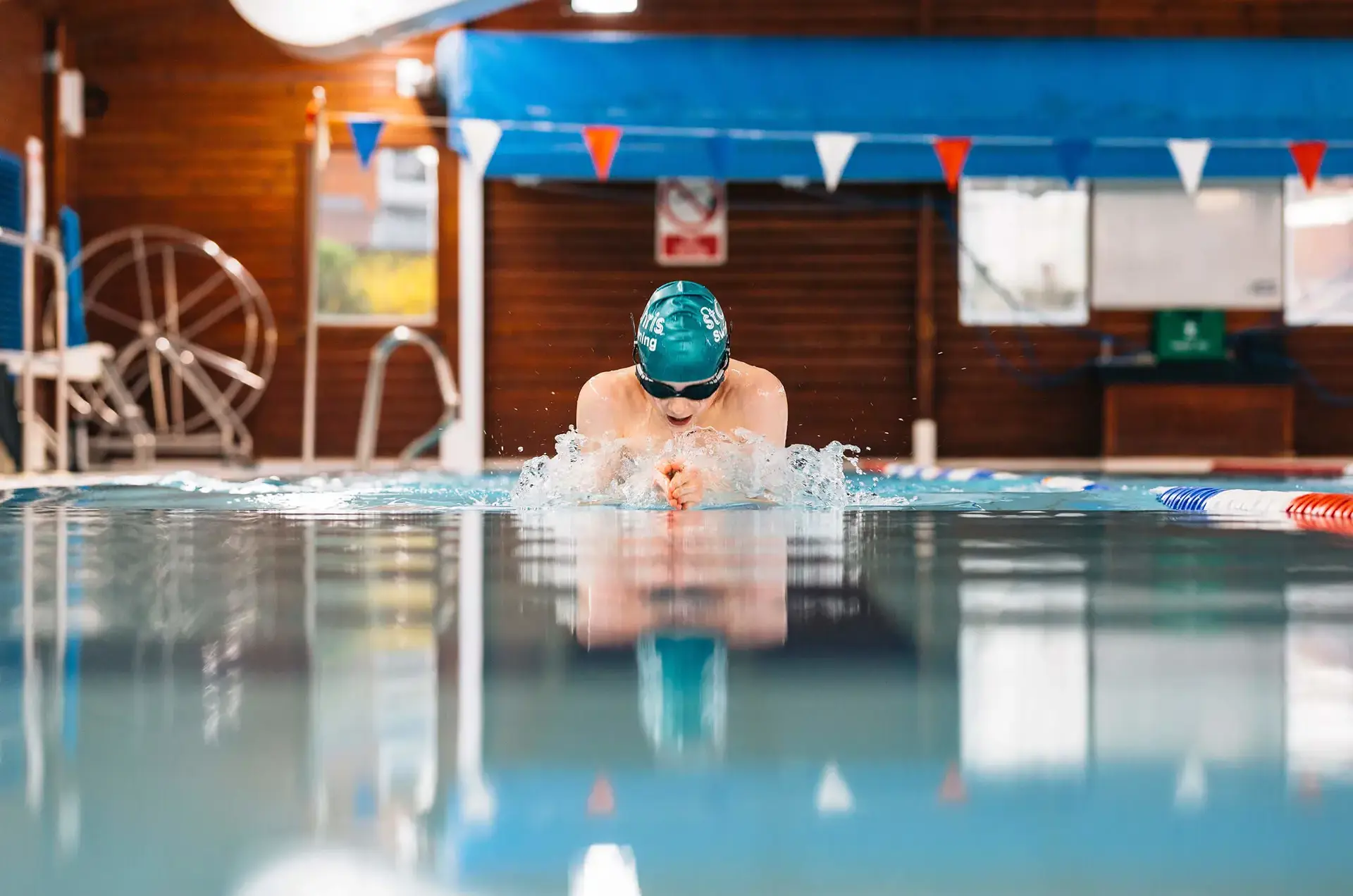
The commitment to fostering independence, critical thinking, and social awareness creates a nurturing environment where every student is empowered to embrace their unique journey. When pupils join St Chris Sixth Form, they learn and grow in the knowledge that each day is a step towards a future filled with knowledge, confidence, and limitless possibilities.


